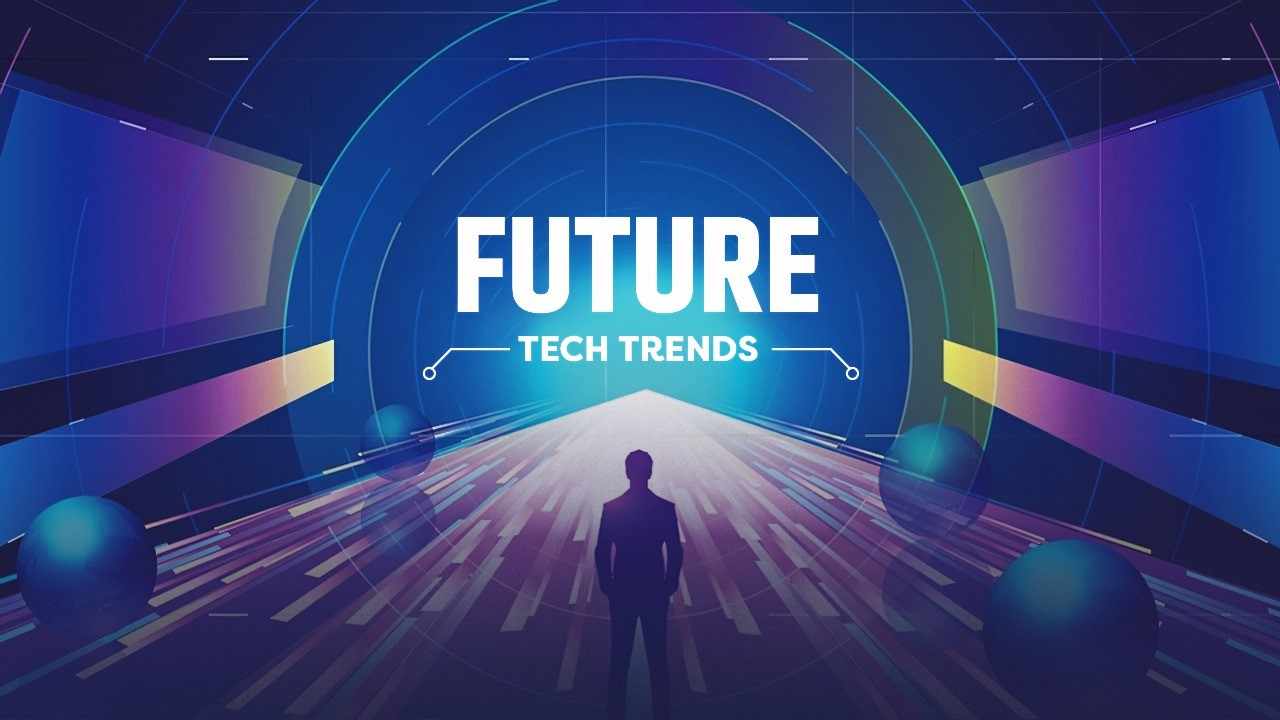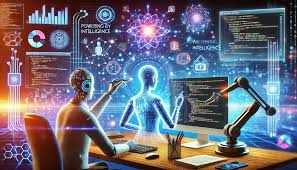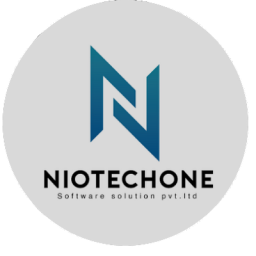AI-Powered Software Development: The Future of Coding
Artificial Intelligence (AI) is no longer a futuristic concept—it’s a present-day game-changer. In 2025, AI-powered software development is transforming the way we build applications, automate workflows, and deliver digital solutions. From custom software development to Microsoft .NET development and modern web development, AI is enabling faster coding, smarter debugging, and predictive analytics that reshape the software industry.
In this article, we’ll explore how AI is influencing coding, why businesses should adopt it, and what the future holds for developers and organizations.

Why AI in Software Development Is the Next Big Thing
Software development has always been resource-intensive, requiring significant time and skilled developers. AI is solving these challenges by:
Automating repetitive tasks like code generation and testing.
Enhancing security through AI-powered vulnerability detection.
Accelerating development cycles with intelligent code suggestions.
Businesses engaged in dot net development, custom software solutions, and web development can leverage AI to build applications faster and with higher quality.
How AI Is Transforming Software Development
1. AI-Assisted Coding
AI-powered coding tools like GitHub Copilot, Tabnine, and OpenAI-based solutions can:
Suggest real-time code snippets.
Predict the next line of code based on context.
Reduce human error and speed up development.
For Microsoft .NET developers, these tools integrate seamlessly with Visual Studio, making .NET application development faster and more efficient.
2. Automated Testing and Bug Fixing
Testing is one of the most time-consuming parts of custom software development. AI tools can:
Automatically generate unit and integration tests.
Detects bugs early in the development cycle.
Suggest code improvements.
This ensures high-quality web applications and enterprise solutions without lengthy QA cycles.
3. AI-Powered Project Management
AI-driven project management platforms help:
Predict delivery timelines.
Allocate resources efficiently.
Identify bottlenecks using historical data.
For outsourcing or large custom software projects, this means improved ROI and timely delivery.
4. Intelligent Debugging
Debugging traditionally takes up 40-50% of development time. AI tools can:
Analyze logs to identify root causes instantly.
Provide automated fixes for common issues.
Suggest performance optimizations for .NET-based applications.
5. Enhanced Cybersecurity with AI
Cyber threats are evolving rapidly. AI-powered security tools can:
Detecting anomalies in real time.
Prevent zero-day attacks.
Automate security patching for web applications and enterprise software.
For businesses handling sensitive data, AI-driven security measures are critical.
6. Natural Language to Code (NL2C)
AI models now convert natural language descriptions into functional code. For example:
You type: “Create a login page with two-factor authentication in ASP.NET.”
AI generates the initial code structure.
This revolutionizes Microsoft .NET development, making it easier for businesses to develop custom applications without heavy coding expertise.
Benefits of AI-Powered Software Development
Faster Time-to-Market: AI automates coding, testing, and deployment.
Reduced Costs: Less manual work means lower development expenses.
Higher Quality Applications: AI detects errors early, ensuring robust software.
Improved Productivity: Developers can focus on innovation instead of repetitive tasks.
Scalability: Perfect for large-scale web development and enterprise projects.

Challenges in AI-Driven Development
While AI brings significant advantages, there are challenges:
Data Privacy Concerns: AI tools require access to large codebases.
Skill Gaps: Developers need AI integration knowledge.
Over-Reliance on AI: Risk of reduced manual coding expertise.
Businesses should balance AI automation with human expertise for best results.
AI and the Future of .NET Development
AI perfectly complements Microsoft .NET development by:
Integrating with Azure AI Services for intelligent apps.
Optimizing code performance for cloud-native applications.
Automating deployment pipelines using AI-driven DevOps.
For enterprises using custom software development, .NET frameworks, and cloud-native apps, AI ensures faster delivery and better security.
Best AI Tools for Software Development in 2025
GitHub Copilot – AI-powered code suggestions.
Tabnine – Machine-learning-based coding assistant.
DeepCode – AI-driven code review.
Kite – Smart code completions.
SonarQube with AI Add-ons – Intelligent bug detection.
AI in Web Development
AI is reshaping web development with:
Personalized user experiences using AI-driven analytics.
Chatbots and voice assistants for dynamic customer engagement.
Automated design suggestions for responsive UI/UX.
For businesses offering custom web development, AI provides a competitive edge in creating high-performance websites.
The Future of AI-Powered Coding
By 2030, experts predict:
90% of code will involve AI assistance.
No-code and low-code platforms will dominate SMB solutions.
Developers will shift to AI orchestration roles, focusing on strategy rather than syntax.
How Niotechone Helps Businesses Leverage AI
At Niotechone Software Solutions, we:
Build AI-integrated custom software applications.
Offer Microsoft .NET development services optimized with AI.
Deliver secure, scalable web solutions using AI-driven tools.
Provide AI-based automation and DevOps services for faster delivery.
Conclusion
AI-powered software development is not the future—it’s the present. Businesses adopting AI-driven coding, testing, and deployment will stay ahead in innovation, speed, and security. Whether you’re into .NET development, custom software solutions, or enterprise web applications, AI is your biggest ally in 2025.
FAQs
Q1: What is AI-powered software development?
It’s the use of AI and ML tools to automate coding, testing, debugging, and deployment processes in software development.
Q2: How does AI help in .NET development?
AI assists Microsoft .NET developers with automated code suggestions, debugging, and deployment using tools like Visual Studio IntelliCode.
Q3: Will AI replace software developers?
No. AI will assist developers by handling repetitive tasks, while humans focus on logic, creativity, and architecture.
Q4: Is AI beneficial for custom software development?
Yes, it reduces time-to-market, enhances security, and improves application quality.
Q5: Can AI write an entire application by itself?
AI can generate functional code blocks, but complex apps still need human oversight for design, architecture, and business logic.


Write a comment ...